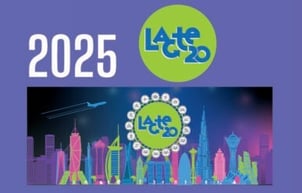The U.S. Attorney General memorandum from July 14, 2025, has marked a turning point in the country’s approach to multilingual government communication. The document, which implements Executive Order 14,224, designating English as the official language of the United States, introduces guidance for federal agencies to scale back translation and interpretation services.
While this policy is U.S.-centric and primarily affects public sector operations, its ripple effects are global, particularly for international businesses, legal teams, event organisers, and customer service leaders who operate in or with the U.S.
At Interprefy, we help global organisations deliver multilingual communication in real time — across borders, formats, and platforms. So we’ve been analysing what this shift might mean, not just for language providers, but for companies navigating ongoing changes in international compliance, accessibility, and user experience.
Here’s what you need to know.
A Policy Rooted in Centralisation and Cost Reduction
The U.S. Department of Justice’s memo outlines a clear directive: English will be the default language for all federal communication, unless another language is required by law. Specifically, the policy:
- Withdraws guidance that promoted language access for Limited English Proficient (LEP) individuals
- Suspends LEP.gov and public-facing multilingual tools
- Urges agencies to phase out multilingual content unless mission-critical or mandated
- Encourages use of AI and machine translation to lower costs
- Emphasises English-language instruction as the preferred pathway for inclusion.
- All multilingual communications that remain must now include a disclaimer stating that English is the authoritative version.
While the memo is administrative in tone, the practical effects could reshape how both government and private sector actors communicate with non-native English speakers.
Why This Matters to Global Businesses
You might be thinking that this is a domestic government issue. Why should a Swiss financial firm, a Singaporean manufacturer, or a German event organiser care?
Because language policy — especially in the U.S. — has knock-on effects across:
- Legal compliance
- Risk management
- Brand trust and accessibility
- Customer and employee experience
When a country as large and influential as the U.S. shifts its stance on language, global companies doing business there need to revisit their own strategies to ensure clarity, legality, and competitive positioning.
Legal Exposure and Compliance Considerations
First and foremost, businesses that work with U.S. federal agencies or serve U.S.-based populations should revisit language compliance obligations.
Certain sectors remain subject to stringent multilingual requirements — regardless of shifting policy tone. For instance:
- Healthcare providers receiving federal funding must still comply with Title VI and ensure meaningful access to patients with limited English proficiency.
- Educational institutions must ensure language inclusivity under the Equal Educational Opportunities Act.
- Financial services must meet requirements set by the CFPB (Consumer Financial Protection Bureau) and banking regulations that require fair lending and transparent communication.
Even if U.S. federal agencies scale back multilingual services, private organisations — particularly those receiving federal funding or operating in regulated sectors — may still be legally required to maintain language access. Reducing support without a compliance review could result in regulatory, legal, or reputational consequences.
Multilingual Customer Experience: A Strategic Imperative
Even when not legally required, multilingual communication remains a competitive differentiator. For global businesses that engage with U.S. federal agencies — through funding, regulation, or public-private initiatives — this change has clear implications. Language support may no longer be provided by government partners, shifting responsibility onto private organisations to ensure accessibility and clarity for limited English proficient (LEP) individuals.
This raises important questions:
-
Are your compliance and communications teams prepared to address emerging gaps in multilingual access?
-
Will critical information you depend on from U.S. agencies still be accessible in your stakeholders' preferred languages?
-
Can your organisation take the lead in providing clear, inclusive communication where the public sector no longer does?
While this policy may reduce multilingual efforts within the federal government, it underscores a growing need for businesses to be proactive — ensuring they meet legal requirements where applicable and uphold inclusive communication practices that support customer trust, accessibility, and global reach.
AI and Automation: Opportunity and Oversight
Additionally, the memo recommends that agencies lean on AI and machine translation to reduce the cost of multilingual services. This direction mirrors a trend already underway in global business.
AI-powered speech recognition and speech translation tools have become dramatically more sophisticated. They offer faster turnaround, scalability, and — when used responsibly — reasonable accuracy for certain use cases.
However, they are not suitable for every context. In fact, relying solely on AI without human validation in, for example, legal, medical, or business-critical contexts might introduce risks such as:
- Misinterpretation of legal testimony or contract terms during negotiations
- Loss of nuance in medical consultations where patient safety depends on accuracy
- Cultural missteps in high-stakes diplomatic or executive meetings
- Overlooked dialectal differences in community outreach or public engagements
Global businesses should view AI as an accelerator, not a replacement. The most effective strategies today combine automation with expert oversight — ensuring efficiency without sacrificing clarity or credibility.
Therefore, it is becoming increasingly important for organisations to make informed decisions about when to rely on automation and when to involve human expertise. Regulatory exposure, reputational risk and audience expectations should all shape how multilingual communication is managed, particularly in high-stakes or sensitive settings. Therefore, now, more than ever, it is paramount to rely on good guidance. Interprefy supports organisations by not only providing a blend of AI and human-powered language solutions, but also advising on the most suitable approach for each use case — helping ensure that multilingual communication remains effective, compliant, and fit for purpose.
How Will This Affect Global Events?
For event organisers and planners, the U.S. policy may have indirect implications — especially when working with U.S.-based government entities or audiences influenced by federal policy shifts.
However, it's important to note that the policy outlined in Executive Order 14,224 applies specifically to federal agencies and their communication practices. It does not restrict or discourage multilingual support in the private sector or in international business settings.
That said, the change in tone at the federal level could influence how some U.S. stakeholders approach language services — potentially reinforcing English-first assumptions. For global businesses, this is a timely reminder to continue assessing audience needs across borders, cultures, and languages.
Relying solely on English — especially for dispersed or multilingual teams — risks disengagement and misunderstanding. Rather than pulling back, now is the time to affirm your commitment to linguistic inclusion. Doing so sends a clear message of respect, accessibility, and cultural intelligence to employees, partners, and stakeholders worldwide.
Reframing Language as Strategy
Language support has historically been treated as a cost line item. But leading global companies now approach it as a strategic asset.
This policy moment is a good opportunity to ask:
- Do we have a scalable, flexible translation and interpretation infrastructure?
- Could AI-powered solutions reduce turnaround times without compromising quality?
- Are we treating language as part of our brand experience, not just a compliance requirement?
Answering these questions may not only reduce future exposure, but also improve customer satisfaction, loyalty, and operational efficiency.
How Interprefy Supports Global Business
At Interprefy, we help businesses of all sizes communicate effectively across languages —through:
- Remote Simultaneous Interpretation for in-person, virtual and hybrid events
- AI speech translation and captioning
- Support for over 6000 language combinations, including regional dialects and sign language
- Flexible integration with any onsite setup, video conferencing and webinar platform
Whether you're engaging with U.S. federal agencies, serving diverse U.S.-based audiences, or operating across multilingual markets, we help you deliver content that’s compliant, cost-effective, accessible, and reliable.
What sets us apart isn’t just technology — it’s the combination of tools and expertise that scale with your organisation.
Final Thoughts: Be Proactive, Not Reactive
The U.S. English-only policy marks a shift in tone, but it doesn’t eliminate the need for multilingual communication. For global businesses, this is a chance to lead — not just follow.
While federal agencies may limit their language offerings, your customers, employees, and users still live in a multilingual world. Meeting them there — in their preferred language — remains a key factor in trust, loyalty, and business performance.
Now is the time to re-evaluate your approach. Not to do less — but to do language more strategically.


.webp?width=1040&height=800&name=Dayana%20%CC%81s%20Copy%20of%20Blog%20post%20template%20(24).webp)



 More download links
More download links



